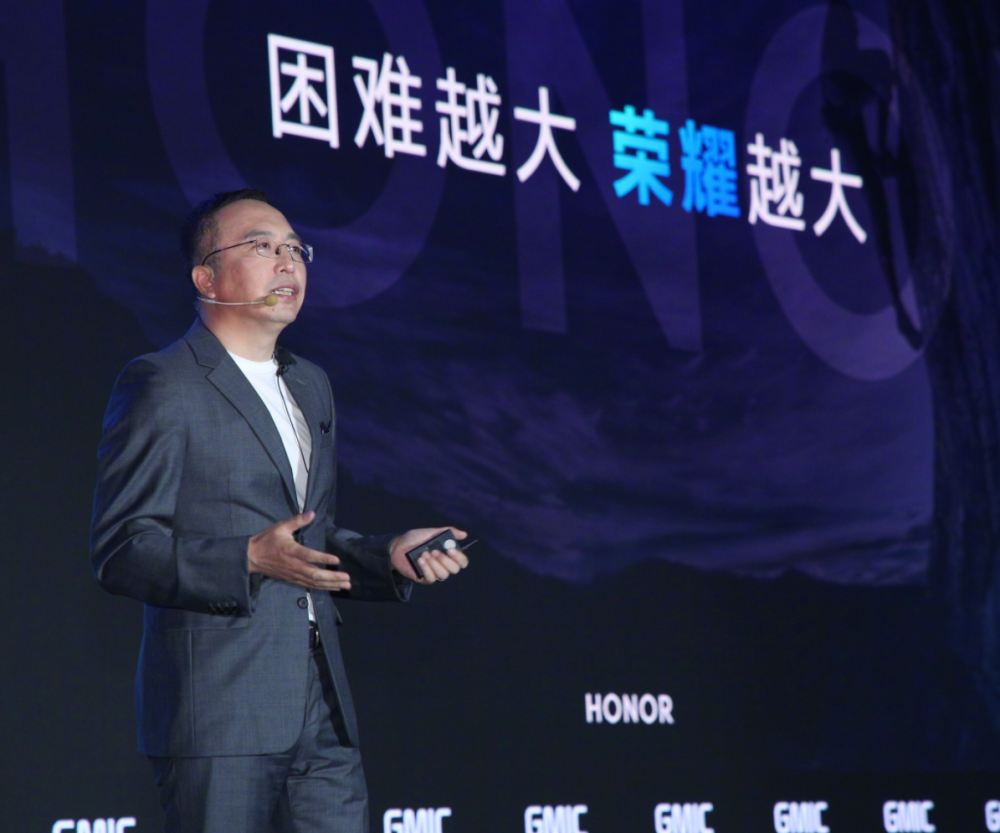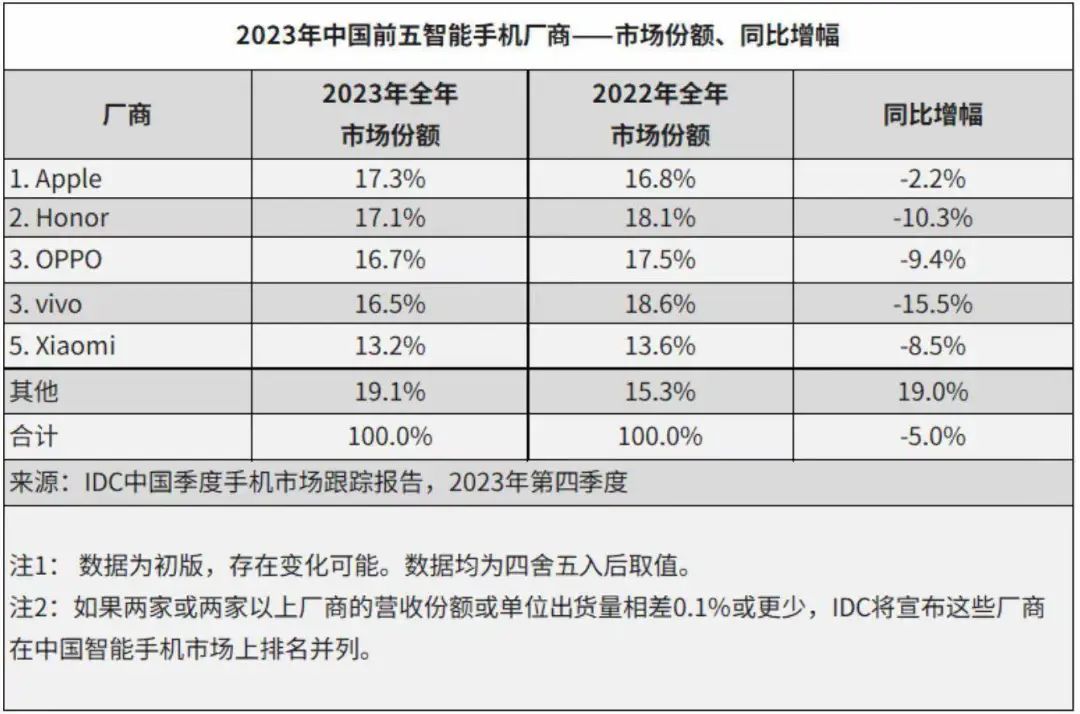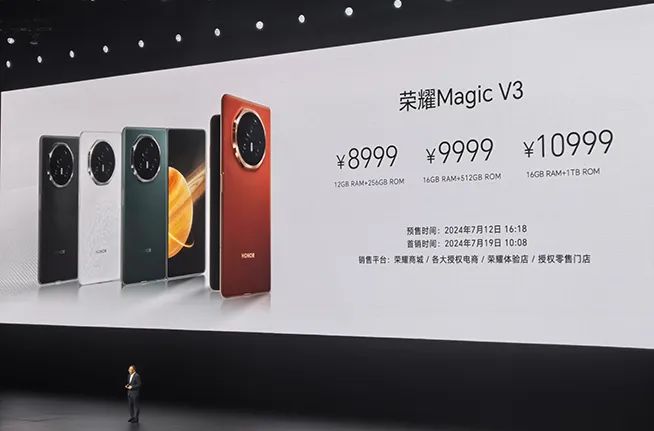Four years after leaving Huawei, Honor decides to sprint towards IPO
![]() 08/08 2024
08/08 2024
![]() 519
519
After being rumored for IPO multiple times, Honor is finally one step closer to its IPO. Following its announcement in November last year that it would enter the capital market through an IPO, Honor recently revealed its progress once again.
In an interview with China Business Times, Honor stated that it plans to initiate the corresponding shareholding system reform in the fourth quarter of this year and subsequently launch the IPO process at an appropriate time.
Since Honor's separation from Huawei, it has attracted attention from both the capital market and the mobile phone market. Honor 'honors Huawei' but seems unable to shake off Huawei's shadow.
However, as Honor inches closer to its IPO, its determination to progress further is evident in both product layout and channel reform. Before going public independently, Honor needs to tell its own 'new story.'
1. A rocky road to the stock market
In recent years, Honor has been repeatedly rumored to go public, and there was even a rumor that it would backdoor list. In response, Honor issued a board announcement stating that it would definitely list through an IPO, dispelling rumors of backdoor listing, but the timing remained uncertain.
Now, Honor has finally set a timeline for its IPO. According to industry insiders, it will take at least 1-2 years from preparation to formal listing, and it is natural for Honor to actively prepare now.
On its journey to plan for listing, Honor has maintained an open attitude. Compared to some companies that keep news under wraps until the last minute, Honor's IPO has continuously garnered attention from the outside world.
On the one hand, Honor currently has 15 shareholders, including local state-owned assets, supply chain suppliers, third-party investment institutions, and Shenzhen Zhixin New Information Technology Co., Ltd., jointly invested by several Honor agents and distributors. Among them, Shenzhen Zhixin holds the highest stake at 74.43%.
Many of these shareholders are Honor dealers, suppliers, and other investors with a vested interest in the company. They choose to be 'highly bound' to Honor, naturally hoping for a return on their investment. Including Honor's early rumor of an 'IPO within three years' was likely also to reassure dealers and suppliers.

On the other hand, state-owned assets are also involved in Honor, so maintaining openness and transparency in its IPO is an important way for Honor to demonstrate its independence. Honor has stated that it has not received 'more support than usual from the Shenzhen Municipal Government' and will adhere to the principles of openness and transparency in its future listing, continuously diversifying its shareholding structure.
However, it is worth noting that the capital market is no longer in a 'frenzied' stage. Whether Honor will miss the listing window or even face a broken issue upon listing has become a greater concern for shareholders.
It is reported that as early as August 2021, a core Honor dealer revealed that Honor might list soon, and dealers could purchase original shares with subscription amounts ranging from 5 million to 50 million yuan. However, according to China Business Network, Honor withdrew the notice for subscribing to original shares after the beginning of 2022.
In 2023, Honor restarted channel share allocation, and insiders revealed at the time that the share allocation was not only for channels but also for employees, with share allocation indicators even distributed among departments.
From explicitly stating in 2020 that it would 'not list' to quietly withdrawing channel share allocation after initiating it in 2022, and then restarting channel share allocation and clarifying its intention to list in 2023, Honor's IPO journey has been rocky.
One reason for Honor's 'wavering' stance on listing may be its dispersed shareholder base, requiring a balance of interests. Industry insiders say that many of Honor's shareholders are its suppliers and have transactional relationships with Honor, which still needs to further clarify relationships and improve related structures and mechanisms before listing.
2. Not being Huawei's 'shadow'
In fact, Honor's intricate shareholding structure is a 'double-edged sword.' An overly dispersed shareholding structure means catering to multiple interests, which can easily lead to a loss of the company's ability to make quick decisions.
However, for Honor, having shareholders such as dealers and supply chain partners who share common interests has been an important boost to its early development. They not only actively supply products but have even been questioned by the outside world about inflating shipment numbers, merely shuffling inventory from the supply chain's 'left hand' to dealers' 'right hand.'
Nanfang Daily once quoted industry insiders' analysis, suggesting that Honor's shipments likely shifted from the supply chain to the dealer system because many of Honor's dealers are its shareholders. Shareholders promoted their own enterprises, and inventory did not actually reach consumers' hands.
Nonetheless, Honor CEO Zhao Ming has repeatedly denied inventory pressure. Ultimately, whether Honor phones have truly reached consumers' pockets remains a 'mystery,' but from some side reports, Honor's early shipments were not optimistic.
According to the Economic Observer, a mobile phone industry investor conducted an in-depth survey of Honor's nationwide offline channels starting in October 2022 and found that Honor's authorized stores shrank from 3,300 to 3,100 within just one month.
Furthermore, some Honor dealers said that there were also issues with product positioning in Honor's early days of independence. Honor's initial team of 8,000 people all came from Huawei, which imbued Honor's early development with Huawei's 'shadow.'
Therefore, early Honor products were often called Huawei 'clones,' with sales focused primarily on low-end products. High-end products lacked competitiveness, making it difficult to compete directly with competitors.
It is not difficult to see that in the first two years after Honor's independence, it indeed went through a painful period, testing not only the brand's growth potential but also the 'human nature' of the supply chain and dealers behind it. To some extent, without the 'interest binding' of shareholding, Honor would have struggled to survive the initial integration period of independence.
But after two years of lurking, Honor began to reclaim its 'leading role.' It is reported that within Honor, there is a saying that 'three generations must succeed,' meaning that a product series should become a hit by its third generation.
So in 2023, the Honor Magic5 emerged, with high hopes of becoming a benchmark product surpassing Huawei's Mate series. While still bearing Huawei's shadow, the Honor Magic also incorporated many differentiated highlights, such as the Honor Magic Eagle-Eye capture technology and 'Qinghai Lake Battery' technology, surpassing 500,000 units sold on its first day of sales.
After that, Honor also launched the Honor Magic V2 folding screen phone in July 2023, which claimed to usher in the 'millimeter-level' era of folding screen products. Even in a secondary market overshadowed by 'IPO underpricing fears' that year, many users were willing to pay a premium for it.
According to IDC data, Honor ranked second with a 18.1% sales share in 2022 and topped the domestic mobile phone shipments in 2023 with a 17.1% market share.

However, while Honor has proven with its strength that it is no longer Huawei's 'shadow,' with Huawei's strong return to the smartphone market, Honor has become Huawei's 'enemy.'
According to Canalys data, in the second quarter of 2024, domestic mobile phone rankings were VIVO, OPPO, Honor, Huawei, and Xiaomi, with no significant differences among the top five, and the competition was exceptionally fierce.
In the first quarter of this year, Honor still ranked first with a 17.1% market share, followed by Huawei. For reference, in Honor's early days of independence, its market share was only around 3%.
Data shows that global smartphone shipments declined by 3.2% year-on-year in 2023. After several years of cold weather, the market finally showed a glimmer of warmth this year, with China's overall smartphone shipments increasing by 6.5% year-on-year.
Naturally, mobile phone manufacturers do not want to miss this opportunity and are actively seeking 'new tricks' to break through the market, and Honor is no exception. Therefore, Honor's IPO being brought to the forefront at this time also shows its determination to fight a tough battle.
3. Honor needs to tell a new story
For Honor today, it has long shaken off the shackles of Huawei and become a shining star among Chinese smartphone brands, no longer a 'Huawei substitute.'
It can be said that Honor has completed the first stage of its independence, but the next task is even more challenging. To pave the way for a smooth listing, Honor must tell compelling stories to the capital market and seek maximum valuation.
Currently, Honor is attempting to break through with a 'three-pronged approach.' Firstly, AI concepts. Like many of its peers, Honor has also bet on AI.
In January this year, Honor released its self-developed end-side platform-level AI large model, 'Magic Large Model.' In June, Honor established end-side AI as the company's primary strategic direction for future development. Zhao Ming believes that end-side AI has significant advantages over cloud-side AI and is the correct direction and strategy for mobile phone manufacturers to develop AI. He stated that Honor's end-side AI is three years ahead of Apple's.
At the end of last year, Zhao Ming believed that future large model technology should combine cloud-side and end-side, but as Honor's AI-enabled new phones continue to hit the market, Honor prefers to differentiate itself from other manufacturers. Honor's AI terminal layout is gradually becoming clearer.
Secondly, folding screens. For the high-end market long dominated by Apple, Honor's folding screen phones fill a gap in its high-end offerings, which can be considered a clever move.
However, last year's Magic V2, limited by price and technology, left much to be desired, such as the lack of a periscope lens and wireless charging.
In July this year, Honor officially launched the all-new Magic V3, once again challenging industry limits in terms of thinness while optimizing more configurations. This product, priced at up to 8,999 yuan, will be another attempt by Honor to challenge the high-end market.

Lastly, overseas expansion. Zhao Ming has stated that Honor aims to make Europe its 'second home market,' with overseas sales exceeding those in China within the next three to five years.
However, currently, the top five global mobile phone sales rankings in 2024 are Samsung, Apple, Xiaomi, VIVO, and Tecno, with Honor still classified as 'Others.'
Honor's early overseas expansion was largely based on Huawei's business structure and sales channel networks. However, in recent years, Honor has actively promoted overseas market development, focusing on restoring personnel, technology, and products after brand independence. To surpass its predecessors, Honor needs to devote more effort to breaking into overseas markets.
This year marks Honor's fourth year of independence, and listing has become a crucial hurdle it must overcome. It is necessary not only to reorganize shareholding relationships and reward investors but also to raise funds for better technological, product, and brand ecosystem development. Honor has sounded the charge, and now it remains to be seen how it will prove its value to the market and investors.







